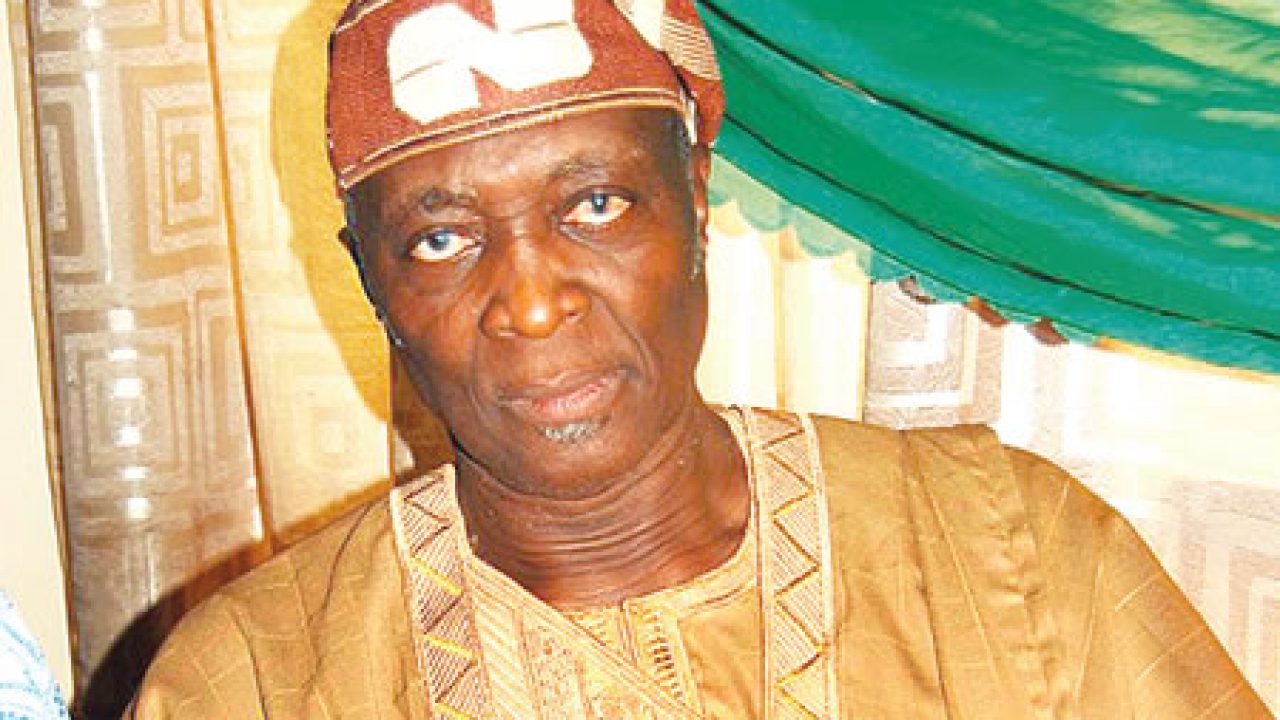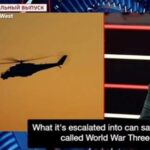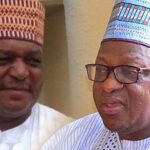
The Secretary General of the Yoruba Council of Elders, Dr Kunle Olajide, 77, was a medical student at the University of Ibadan during the Western Region’s political crisis of the early 1960s which snowballed into what came to be known as ‘Operation Wet e’.
He recalls with trepidation how Operation Wet e plunged the then Western Region into turmoil and large-scale destruction of lives and property, which eventually ended the First Republic.
Olajide tells OLUFEMI OLANIYI that everything must be done to prevent a re-enactment of such orgy of violence in the South-West as supporters of some presidential aspirants have started making incendiary comments ahead of the 2023 presidential election
Where were you during Operation Wet e?
I was a student at the University of Ibadan. I was around in Ibadan then. I saw what happened. It’s a long time now but I don’t pray we witness such again. It was horrible.
What will you say led to the crisis then?
Those controlling the Federal Government at that time wanted to force Western Region’s citizens to align with them. That was what led to the wanton killings and destruction of property in the entire region.
There was (the late) Chief Samuel Ladoke Akintola and there was (the late) Chief Obafemi Awolowo. There was the Action Group and the Nigerian National Democratic Party and, of course, the Yoruba were pro-Awolowo hundred per cent and they saw Akintola as a traitor, who was going to sell them to the northerners. Yoruba people were solidly behind the Action Group led by Chief Obafemi Awolowo and the then Federal Government wanted to use the federal might to compel victory for their own party, which was in the minority. That was what provoked some people in the Western Region at that time to begin to set ablaze houses, vehicles and human beings. They targeted the tiny supporters of this minority group in the region and that was what basically caused Operation Wet e and the region was thrown into an orgy of violence.
Who coined the name ‘Operation Wet e’?
Nobody in particular; it was a mass anger, mass revolt. The people wanted Action Group and resisted the attempt to align them with the Nigerian National Democratic Party. Operation Wet e was just coined from the action of pouring petrol on human beings and property and setting them ablaze. They (protesters) wet their targets with fuel and set fire to them. It was a nasty experience.
Was the violence just in Ibadan or were other parts of the Western Region involved?
It happened not just in Ibadan. But, of course, it was more pronounced in Ibadan and Lagos because of the high level of political activities there; but other cities and towns were not spared too.
Was there violence in Ogbomoso where Akintola came from?
No, I don’t think so. They stood by their own son and that was expected. Akintola was pro-North where he was getting his support from. But the majority of Yoruba saw him as a betrayal at that time.
Were Awolowo and Akintola in the same political party before the crisis?
Yes, they were. Chief Akintola was the spokesman for the Action Group. He was a first-class orator, very fluent in English and Yoruba.
Who were the other political actors at that time apart from Awolowo and Akintola?
There was Chief Rosini and a host of others who I can’t remember now. It’s been a long time ago. The party was polarised and some of the members stood by Chief Awolowo while some went with Chief Akintola.
What kind of relationship existed between Awolowo and Akintola before the face-off that snowballed into ‘Operation Wet e’?
Their relationship was very cordial. They were best of friends. In fact, at political campaigns, all that Chief Awolowo did was to mount the rostrum and the crowd would shout: “Up Awo! Up Awo!” With his characteristic victory sign, he would turn round and that was the end. It was Chief Akintola, who would mount the campaign podium because he was a very good orator – a very good orator who understood Yoruba language inside-out and English language too. He would mount the rostrum and would thrill the audience for 30-45 minutes. They were that close.
Were their wives also friends?
Yes, their wives were merchants, trading in clothing and so on. But when Satan wants to do his things, something will just happen. I don’t want to jump into conclusion but at that time we believed that money issue between the wives because of their trading really started the division.
Was there an estimate of the number of lives lost during ‘Operation Wet e’?
The killings happened in many places and nobody could give the number of people killed. Lives were lost and property destroyed; it was not a pleasant experience at all.
Can you recall some of the prominent persons possibly consumed by the crisis?
Those who were with Chief Obafemi Awolowo initially and then went to Chief Akintola, their houses were destroyed by the masses. It is something one doesn’t want to remember anymore because close relations and family members and friends suddenly turned enemies. It was traumatising, especially for those of us who were their children. We discovered that children could no longer go to their friends’ houses because of the bitter rivalry among the adults. It is something I don’t want to remember anymore.
How was ‘Operation Wet e’ finally brought to an end?
There was no resolution of the crisis. Military intervention brought it to an end. It was the military that came in and the crisis ended because political activities were suspended for a considerable length of time.
Many think that military intervention was responsible for the slow growth of the country. Do you align with that view?
Of course, I do. If there was no military intervention, our democracy would have grown better than this. Nevertheless, when a small child is attempting to walk, they fall down many times before they master their steps. I think we are going forward now and backward never.
Will you say politicians have learnt enough lessons from ‘Operation Wet e’?
No. I have been shouting myself hoarse in the last 20 years that politics has become heavily monetised and that is why politicians have become more desperate. It has become a do-or-die affair and it ought not to be so. When somebody becomes a councillor or chairman of a council, in just some months he or she has owned a fleet of cars and has houses all over. That is what is attracting corrupt people but it should not be so. Politics should be essentially about service. It is good to give political office holders remuneration but as it is now, it is all about money and huge money and that is why it is turning violent, it is a big shame.
Are you saying violence will be eradicated if money is removed from Nigerian politics?
I have been saying this for a long time that only those who are interested in serving the people should be in politics and not moneybags. But those who are interested in service have been shut out; they are outside the ring. Politics is not business, it is about service. Of course, you will get paid moderately for whatever you do and not outrageously paid like what we have now. During the First Republic, members of the House of Reps were earning the same amount as civil servants and their remunerations were not this outrageous. We must make politics essentially service to attract only those who have something to offer to come in. We will never get service if money continues to be the focus. Money makes politics a trade and not a vocation.
Nigeria is preparing to elect another President in 2023. What type of President do you think Nigeria needs?
Nigeria needs a President who knows the country like the palm of his hand; a President who is not tribalistic and whose record of performance is clear for all to see; someone who values merit above sentiments. The President must also be very knowledgeable because we are in the knowledge era and we cannot afford to allow an illiterate or semi-literate person to lead us now when other nations are being led by very knowledgeable persons.
It will be a shame if Nigeria settles for a mediocre President in the 21st Century. It will be a big shame on all of us because we are in the knowledge age. We need a leader who will be able to stand shoulder-to-shoulder with other Presidents all over the world.
Should age matter in the choice of the next President?
I would have wished that the next President should be someone not older than 50 or 65 years of age but if you look at the entire landscape now, hardly can you find people in that age bracket with the ability to perform. But it is still open for Nigerians to decide who will be their President. With time younger persons will emerge as President.
Are you saying in essence is that Nigeria might not have a young President in 2023?
I don’t think so. Just look around now at those aspiring. You have Atiku Abubakar; Yemi Osinbajo; Bola Tinubu and others there. They are in their 60s and 70s and so on. It will take some time before we can have a young President; that is the way I see it.
Does the YCE have any fears or concerns about the 2023 general elections and the interest of the South-West? For instance, Osinbajo and Tinubu have declared their intentions to be President and their supporters have started verbal wars over the ambitions of their principals.
It is very frightening the way things are going and nobody anticipated that. The handwriting we are seeing on the wall is not anything to be proud of and we, the elders, might have to intervene. The elders will have to come in to address the issue. We don’t want another situation where the South-West will be set ablaze because of personal political ambition of anybody. We cannot afford to witness that again. We will have to call them, at least to tell them to moderate their supporters. They have been friends for over 20 years. I don’t see any reason why they must suddenly become enemies and start to point guns at each other. They have been together; they have been friends and political allies for over two decades. They should not allow politics to turn them to enemies. I don’t see anything bad in the two of them pursuing their ambitions, but it must be done decently. They must be able to caution their supporters because sometimes, it is the supporters that start these problems. So, they must caution their supporters and go about selling their messages to the people in a very decent manner. Also, the security agents must do their job.
In specific terms, what do you expect the security agents to do?
Politics should be a game of wits. Politics is not supposed to be a game of violence. What a politician needs to do is to sell their message to the people and outwit their opponents. You must be intelligent and show your power of articulation and not by wielding guns and cutlasses; that is primitive. We want everybody to bring their scorecards to the table. Let’s see what you have been able to do before, what you want to do and how you want to do it. It is not to be provocative and resort to issuing incendiary statements. We want to see contestants’ programmes and not the number of guns they have or the horde of thugs at their command. The law enforcement agents should not allow anybody to plunge the country into anarchy. There should be no sacred cows. I want to sincerely advise our politicians, especially those who have been on the field for a while, to tread softly. Also, the law enforcement agents should do their job.
Afenifere leader, Pa Ayo Adebanjo, said recently that Nigeria may come to an end if a northern President emerges again in 2023. Do you agree with his assertion?
That Nigeria will end? I respect Baba so much but I probably will not want to agree with him on this. If Nigerians decide to vote a northern President again, what will end it? It depends on the people and their choice.
But we must sit down and fashion a constitution that is realistic and that has been my position all along. In the constitution, it must be stated that the President must not come from only a particular part of the country. If we don’t do that and Presidents keep coming from a particular part of the country, then it’s our fault. So, everybody who loves this country must begin to clamour for a brand new people’s constitution that provides for some form of rotational presidency built in it. It must be made impossible for a part of the country to keep producing the presidents all the time.
Apart from rotational presidency, what other things do you suggest should be in the new constitution?
I have been an advocate of a new constitution and I want a new constitution that will really address the problems of Nigeria. It must address the reality of Nigeria and the reality of Nigeria is that we are not one people. We are not one country, we are different peoples with different backgrounds, different histories. We must sit down and agree together on how we want to live together. Our cultures differ. Now that they have compelled all of us to put on the same garment and pretend to be one people when, in reality, we are not one, we should know our differences, recognise them and agree on how we will manage and live together with our differences. Nigeria is not one because a typical northerner is different from a classical Urhobo man and so on. If we now say we should be pretending to be one, it is a huge deceit. We must come to face the reality and know that we must manage our differences to give us good results. But to keep pretending that we are one is a fallacy.
Copyright PUNCH.
All rights reserved. This material, and other digital content on this website, may not be reproduced, published, broadcast, rewritten or redistributed in whole or in part without prior express written permission from PUNCH.
Contact: [email protected]





